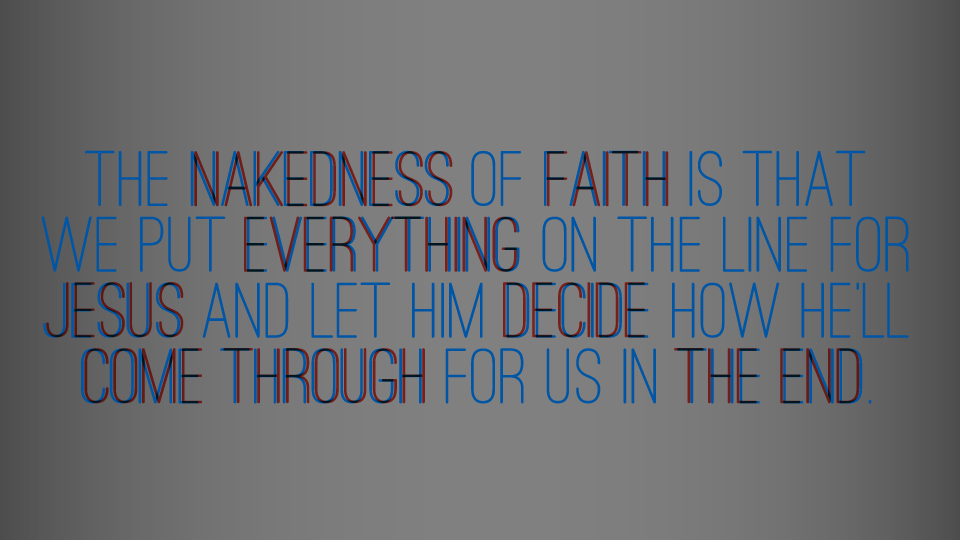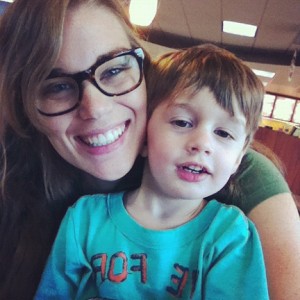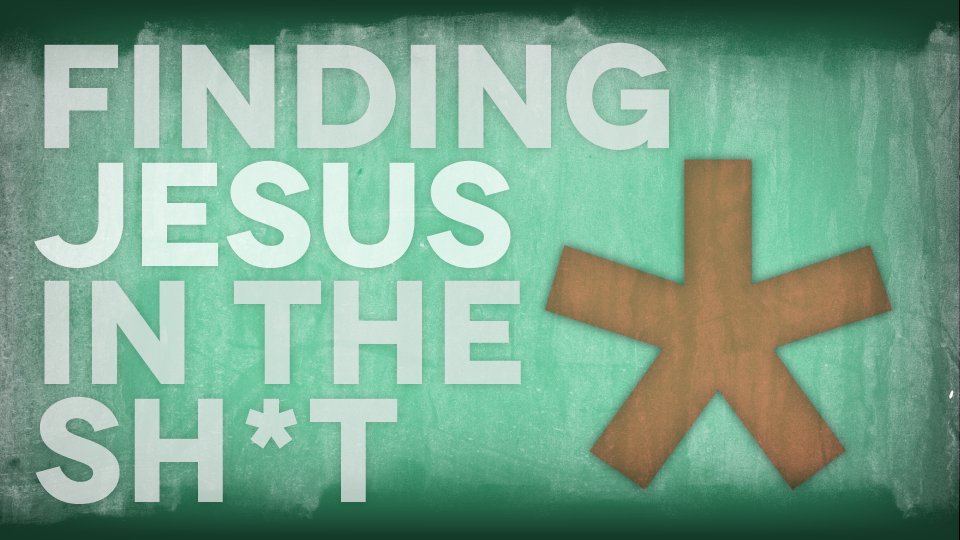Ralph, a family friend since before I was born, sent me an excerpt from a book he’s reading called The Art of Pastoring by David Hansen. He knows a lot of my story, particularly the part of the story that we’ve been living for the past six months or so. Between Zeke’s epilepsy/autism, losing our church, and then losing my job, our family has really been through the meat grinder. I have often been left scratching my head, wondering where, exactly, God has gone to. Had I done something wrong? Had I veered off course while he kept going? Had I unknowingly broken his will and sinned? I didn’t think so. But I still had no explanation for why I felt so Godforsaken.
Then Ralph sent me this excerpt. It has been a long time since I have so deeply resonated with something.
To understand Godforsakenness we must rehearse briefly what has been said [earlier in the chapter] about call. Initially we hear God calling us to ministry, and we make covenant with him to follow the trail toward pastoral ministry. We undergo a process of preparation, sometimes rigorous and difficult. In it we learn to listen to Scripture, to listen to a person and to listen to God. At ordination the church formally recognizes our call and blesses us with the power of the Holy Spirit through the laying on of hands. We begin our ministry, and we encounter many things. We work hard and have some successes and some failures. We find through difficult experiences that we have been made for this work. Our hearts are filled with compassion for people, love for the gospel and endurance for the painful parts of the job. We feel God at work in us.
Then one day, for unknown reasons, God just isn’t there anymore. The Presence that has guided and strengthened is gone. Our covenant with God feels broken and void. The Scriptures stop comforting. Every page condemns! We continue to read out of obedience, but the Word becomes the letter that kills.
Pastoral skills become worthless.
The church is no longer a warm, nurturing environment where friends gather. The church expels us from the secure womb. Evil rages against us. The boundaries of the church are not walls keeping evil out but a boxing ring keeping evil in, so that it can come back and strike us again and again and again. We can’t run.
I’m up a tree. High, far out on a fragile limb I cling. I climbed out there because God said that he wanted me there and that he would be with me. Now the limb is cracking off the trunk. God isn’t there anymore.
The picture changes like a dream. I am not out on a limb, but strapped to a tree. I am hanging from a tree. I am dying on a tree.
Pinched in God’s vise [an image he used while discussing how to make flies for fly-fishing], dangling helpless, I am made into the bait of God. But for whom?
Nobody pretty wants me now. The world wants winners. Nothing succeeds like success. Look good to attract the good-looking. Die to attract the dying. Suffer to know the being of suffering. Cry out to know Jesus’ crying out. Hear the blood of the innocents screaming; searing pain rises from blood-soaked dirt.
Only now am I a parable of Jesus Christ. [He said earlier that Jesus is a parable of God–that just as parables describe something visible so that we can understand something invisible, so Jesus becomes a parable of God. But then we become parables of Jesus, showing others what’s invisible (Jesus) in our own visible lives/stories.]
Jesus cried out, on the cross, “Eli! Eli! lema sabachthani!” This means, “My God! My God! Why have you forsaken me,” and is a direct quote of Psalm 22. I don’t think he was just quoting Scripture for fun, or to fulfill prophecy. I believe that Jesus cried out in guttural anguish, and the first words that came to his mind were the first words of this dark psalm. The Son of God was Godforsaken in his most desperate hour.
If I am to become like Jesus, then doesn’t it follow that I must also become Godforsaken? If Jesus was the visible description of the invisible God (a living parable), and now is invisible himself, then that leaves it to us to become parables of Jesus. We must become the visible descriptions of the invisible Lord, and in order to fully incarnate this reality, we must suffer. We must, like Jesus, become Godforsaken.
God forsakes us, not because we’ve sinned or left his will, but precisely as an act of his will, in order to bring us into fuller empathy for and identification with his son. It is for this reason that we must learn to embrace our exile, to press into the Godforsaken present in which we find ourselves in these dark days. There is no use in trying to get things back to where they were before. The important thing is to face the current reality with courage and faithfulness, so that we can say to Jesus on that day, insofar as such a thing is possible, “I understand.”
For more thoughts on this topic, check out the post A Suffering Participation.




